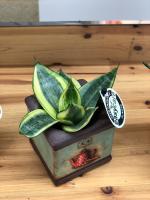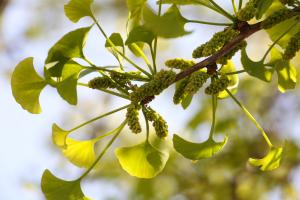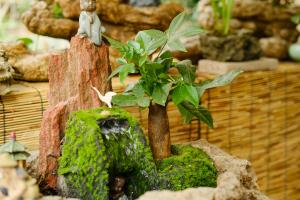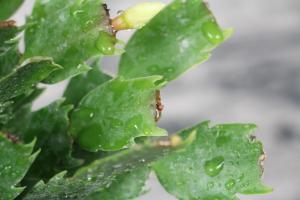Introduction
Black walnut trees are known for their towering height and beautiful hardwood, but they also have a reputation for being challenging to grow other plants nearby. This is due to the release of a chemical called juglone, which is toxic to many plants. However, there are still several garden plants that can grow successfully by a black walnut tree.
Plants that can grow under a black walnut tree
Despite the presence of juglone, some plants have adapted to tolerate or even thrive in the same soil as black walnut trees. Here are a few examples:
Hostas
Hostas are a popular choice for shady areas, and they happen to be one of the few plants that can tolerate juglone. These leafy perennials come in a variety of shapes and sizes, making them a versatile addition to any garden.
Ferns
Ferns are another shade-loving plant that can withstand juglone. They come in a wide range of textures and colors and can add an elegant touch to any landscape. Look for varieties such as ostrich ferns or maidenhair ferns.
Astilbes
Astilbes are a stunning flowering plant that can thrive in partial shade. They produce plumes of feathery flowers in shades of pink, red, and white, and their foliage is also quite striking. Look for varieties such as 'Fanal' or 'Deutschland'.
Siberian Iris
Siberian irises are a low-maintenance perennial that can handle a wide range of growing conditions, including the presence of juglone. They produce elegant blue, purple, or white flowers in the spring and summer and can add a touch of beauty to any garden.
Plants to avoid planting near a black walnut tree
While there are some plants that can grow successfully under a black walnut tree, there are many more that should be avoided. Here are a few examples:
Tomatoes
Tomatoes are highly sensitive to juglone and will not thrive in soil that contains it. If you're planning to grow vegetables near a black walnut tree, avoid planting tomatoes altogether.
Peppers
Peppers are another vegetable that is highly sensitive to juglone. You're better off growing them in a separate area of your garden.
Roses
Roses are beloved by many gardeners, but they will struggle to survive near a black walnut tree. Juglone can cause the leaves to yellow and the stems to wilt, and the plant may eventually die.
Lilacs
Lilacs are a popular flowering shrub, but they are also sensitive to juglone. If you want to enjoy the sweet scent of lilacs in your garden, it's best to plant them far away from a black walnut tree.
Conclusion
Gardening near a black walnut tree can be challenging, but it's not impossible. While there are some plants that should be avoided, there are still plenty of options for creating a beautiful and thriving garden. By choosing the right plants and paying close attention to soil conditions, you can enjoy a lush and healthy landscape for years to come.

 how many times do yo...
how many times do yo... how many planted tre...
how many planted tre... how many pine trees ...
how many pine trees ... how many pecan trees...
how many pecan trees... how many plants comp...
how many plants comp... how many plants can ...
how many plants can ... how many plants and ...
how many plants and ... how many pepper plan...
how many pepper plan...
































